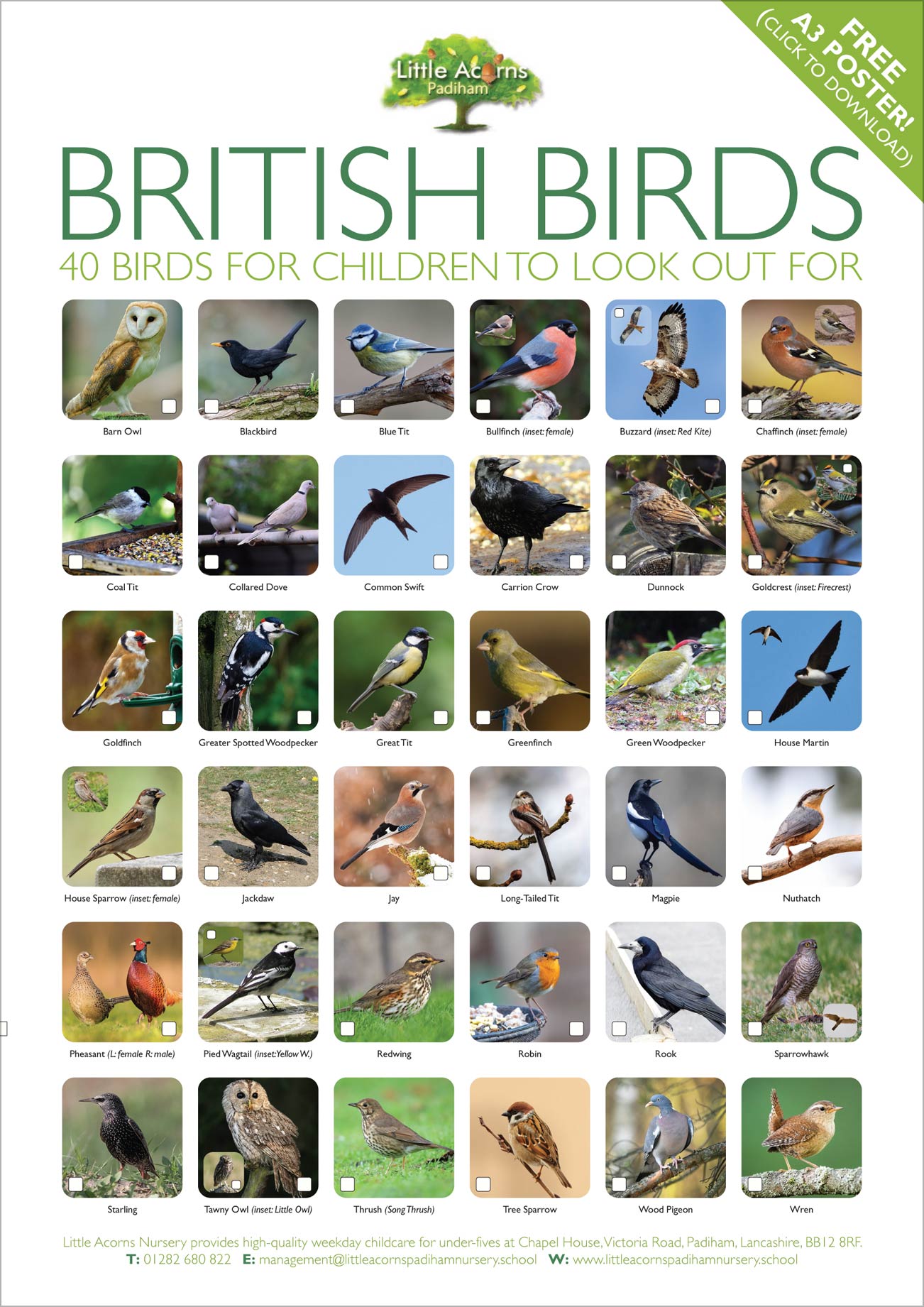
Winter has arrived, and, along with this new, cold season, come some remarkable things for children to see outside in the natural world — and that’s exactly what today’s post is all about. It’s a challenge to little ones to see if they can spot 20 nature-related things outdoors over the coming winter months. What’s more, it comes with a free poster that children can download, print out, and use for reference while they’re out and about on their Winter Nature Hunt.
When Is Winter?
According to the Astronomical calendar, winter arrived with us on December 21, 2025, at what’s known as the Winter Solstice, the shortest day of the year. It’ll remain with us until the Spring Equinox on March 20, 2026, when days and nights once again even up to become virtually of equal length.
In contrast, winter is said to arrive on the first day of December and end on the last day of February — 3 whole calendar months — according to the Meteorological Calendar. That particular calendar works in ‘full’ months as a way of keeping things simple, for example, for weather services and records.
What Can Children Look Out for in Winter?
Take a look at the preview of the reference poster below and the commentary that follows. Despite winter being the season when nature is mostly dormant, it is packed full of interesting and exciting things for children to look out for. Download or view the poster by clicking it, then save it to your device, and print it out to A4 or A5. Children can take this with them on their Winter Nature Hunt and see how many of the 20 suggestions they can discover. Tick boxes are provided.
Magical Snowflakes
With winter arriving, it’s certainly cold out there! That means that snow is more likely to arrive at some point. When it does, children can look out for the little miracles that are snowflakes. Each one is amazing, as children will see if one lands softly on their winter jacket or gloves. By looking closely, your little one will see the intricate 6-pointed shape that’s unique to each flake. Snowflakes really are miraculous! They will both enthral and amaze children if they take a moment to look carefully and compare one snowflake to another.
Icicles
Once the snow starts to thaw, children can also look out for another natural wonder on our Nature Hunt list — icicles. They’re beautiful too, in their own way, each telling a story of the dripping water that’s formed them.
Animal & Bird Tracks
When there’s a blanket of snow on the ground, children will also be able to look out for animal tracks and the footprints of birds. If there’s no snow, it’s still possible to do so by looking in patches of mud (all such activities undertaken with close adult supervision, of course). Such prints are a great way to see which creatures have been passing through at some point earlier in the day or night.
Frost-Encrusted Plants, Trees & Spiders’ Webs
Frost is also rather magical when it arrives, especially first thing on a winter’s morning when it coats literally everything. Children can look out for leaves, grasses, and even spiders’ webs bejewelled in the tiny crystals of ice that make frost. They make the landscape’s plants and trees look magical! And those spiders’ webs look so incredibly decorative when coated, whether by frost, morning dew, or even raindrops. Nature is incredibly beautiful, and children will instinctively be drawn to such wonder.
Leaf Skeletons
Leaf skeletons are another natural wonder for children to look out for. They may not be so easy to discover, but they are out there if children take the time to look. Once found, children will be delighted and intrigued by the fine, structural filigrees that make up the leaf shapes. Leaf skeletons are also something children can take home to press between the pages of a book or pad, so they dry flat. They can be used simply as keepsakes or as part of a creative activity of some kind.
Winter Visitors Like Birds & Squirrels
Let’s also not forget some of the feathered and furry friends that little ones can look out for in winter. On the free poster, we’ve highlighted just three as a starting point — robins, blackbirds, and grey squirrels. All such creatures may become regular winter visitors if the right food is provided. Birds love sunflower hearts and grated Cheddar cheese, for example (learn more in our Simple Bird Feeders guide). Squirrels love nuts, seeds, and sunflower hearts too, as well as bird-safe peanuts. Such foods are very much welcomed by many of nature’s garden visitors over winter, when natural food sources are so depleted.
Lichen, Mistletoe, Pine Cones, & Much More
Other items that will intrigue children are also included on the free poster, for example, lichen, mistletoe, pine cones, and pine needles. Speaking of trees, we also highlight two major types of trees for little ones to look out for and compare; evergreens have leaves or pine needles all year round, while deciduous trees shed leaves in autumn and have bare branches throughout winter. All such natural occurrences can spark educational conversations between parent and child. Children can learn so much from nature and the world around them. Our poster is just a starting point, though, and there are many more interesting, educational, and amazing things to look out for during the winter months if children and families take the time to proactively look. Nature is amazing but, what’s more, nature is incredibly good for children (and adults). This is therefore a very worthwhile activity — have fun!
More Free Nature Activity Posters for Kids!Today’s Winter Nature Hunt activity is one of a series that each comes with a free, downloadable poster for children. So, why not also try our Spring Nature Hunt activity, Autumn Nature Hunt, and Leaf Nature Hunt activity? We also have a free British Land Mammals poster, Minibeast spotting poster, Bird spotting poster, and Butterfly spotting poster for families to use as the basis of more outdoor activities. Click the bold links for more information and free downloads.
|
Little Acorns Nursery
Padiham’s Premier Childcare Service
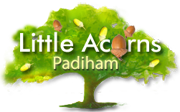
 Little Acorns Nursery is a wonderful weekday childcare setting in Padiham, where children’s learning and development are nurtured in a warm, home-from-home setting. With its own garden and nature zone, little ones get to enjoy nature safely on-site, as well as benefit from the fabulous activities, resources, and facilities indoors. Recognised by Ofsted as a good childcare provider, Little Acorns really is an excellent choice for early years childcare.
Little Acorns Nursery is a wonderful weekday childcare setting in Padiham, where children’s learning and development are nurtured in a warm, home-from-home setting. With its own garden and nature zone, little ones get to enjoy nature safely on-site, as well as benefit from the fabulous activities, resources, and facilities indoors. Recognised by Ofsted as a good childcare provider, Little Acorns really is an excellent choice for early years childcare.
To learn more, enrol your child for a place, or come for a guided visit, please get in touch today:
Little Acorns is a high-quality nursery in Padiham, Lancashire, that provides first-class weekday childcare to local families, virtually all year round. As well as serving those in Padiham, we may also suit families nearby in places like Hapton, Rose Grove, Burnley, Altham, Huncoat, Read, Simonstone, Sabden, Higham, and Wood End.
Safety First!
Don’t forget: children, particularly the youngest, should always be accompanied and supervised by a parent or responsible adult when exploring outdoors — there are many hazards out there!




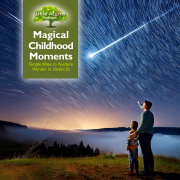
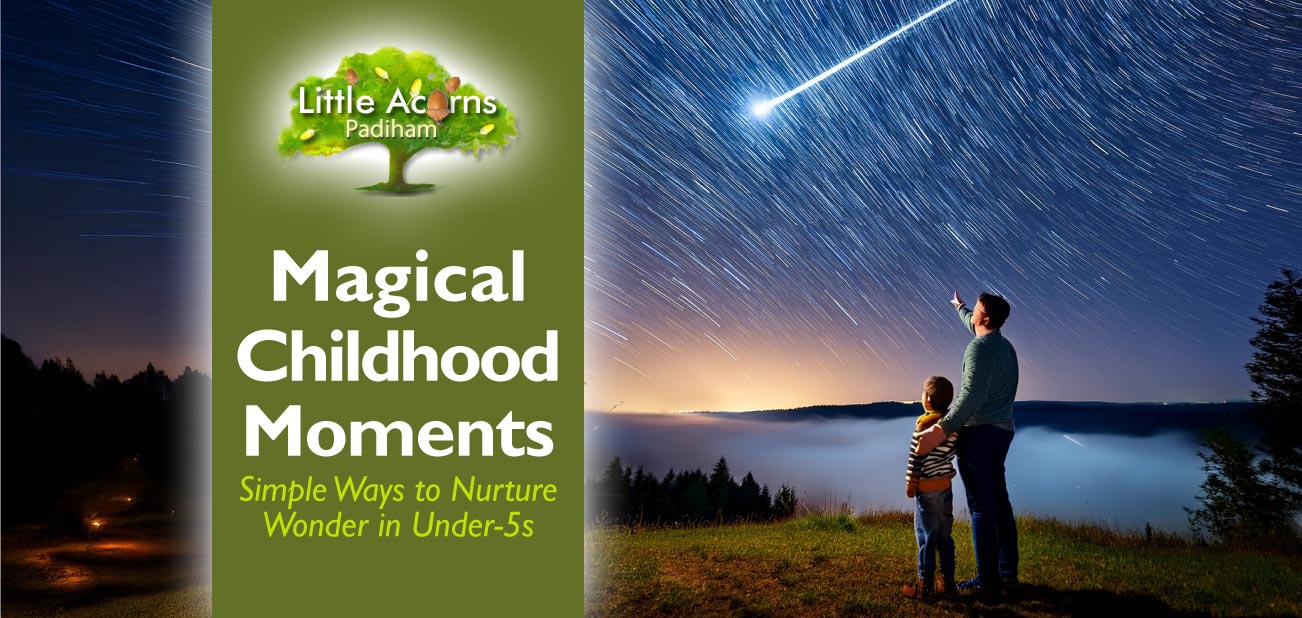
 Childhood is full of magic — not just the kind found in fairy tales, but also the quiet, everyday kind that’s instinctively fed by a child’s curiosity. Little ones have an innate sense of wonder; the world is vast, mysterious, and full of possibility. Whether they’ve discovered a camouflaged moth on a tree trunk, a rainbow stretching across the sky, or the miraculous shape of a fresh snowflake, each can feel like an amazing discovery to a young child. And they really are amazing!
Childhood is full of magic — not just the kind found in fairy tales, but also the quiet, everyday kind that’s instinctively fed by a child’s curiosity. Little ones have an innate sense of wonder; the world is vast, mysterious, and full of possibility. Whether they’ve discovered a camouflaged moth on a tree trunk, a rainbow stretching across the sky, or the miraculous shape of a fresh snowflake, each can feel like an amazing discovery to a young child. And they really are amazing! Young children experience the world differently to adults. They notice details we’ve long since stopped paying attention to — the way water ripples in a puddle, a cloud that may be shaped like an animal, or the captivating sparkle of a ‘special’ rock as it glints in the sun. To little ones, these are truly magical. What’s more, they’re all around us but, with our busy lives, go unnoticed so often by adults.
Young children experience the world differently to adults. They notice details we’ve long since stopped paying attention to — the way water ripples in a puddle, a cloud that may be shaped like an animal, or the captivating sparkle of a ‘special’ rock as it glints in the sun. To little ones, these are truly magical. What’s more, they’re all around us but, with our busy lives, go unnoticed so often by adults.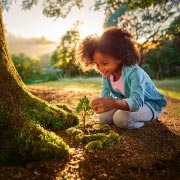 The
The  Starry nights lend us a good example. On a warm summer night, perhaps wrap up in blankets, grab a hot chocolate, and sit outside together to watch the stars. See if your child can spot a satellite on its quiet journey, or a shooting star racing across the night sky. Discuss what it might be like up there in space. Ponder whether there are other creatures on faraway planets looking back at us — perhaps a tiny speck of light to them, just as they are to us. We don’t have all the answers to such big questions, but that’s OK — it demonstrates the enormity and complexity of life and the universe — and can only increase the child’s sense of wonder.
Starry nights lend us a good example. On a warm summer night, perhaps wrap up in blankets, grab a hot chocolate, and sit outside together to watch the stars. See if your child can spot a satellite on its quiet journey, or a shooting star racing across the night sky. Discuss what it might be like up there in space. Ponder whether there are other creatures on faraway planets looking back at us — perhaps a tiny speck of light to them, just as they are to us. We don’t have all the answers to such big questions, but that’s OK — it demonstrates the enormity and complexity of life and the universe — and can only increase the child’s sense of wonder.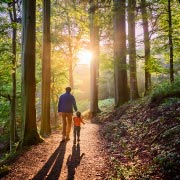
 Magical memories often come not just from what we do with our children, but how we do it. Giving a child and their special discoveries your full attention, feeding back, pondering questions, and marvelling together, all make such moments more special and memorable. The real magic lies in connection — in being fully present with your child, sharing laughter, the sense of wonder, and the warmth of togetherness. The most meaningful memories from childhood need not come from big events or expensive outings — they often come from simple moments that make a child feel curious, loved, and seen.
Magical memories often come not just from what we do with our children, but how we do it. Giving a child and their special discoveries your full attention, feeding back, pondering questions, and marvelling together, all make such moments more special and memorable. The real magic lies in connection — in being fully present with your child, sharing laughter, the sense of wonder, and the warmth of togetherness. The most meaningful memories from childhood need not come from big events or expensive outings — they often come from simple moments that make a child feel curious, loved, and seen.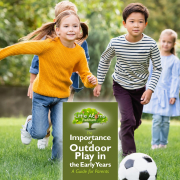
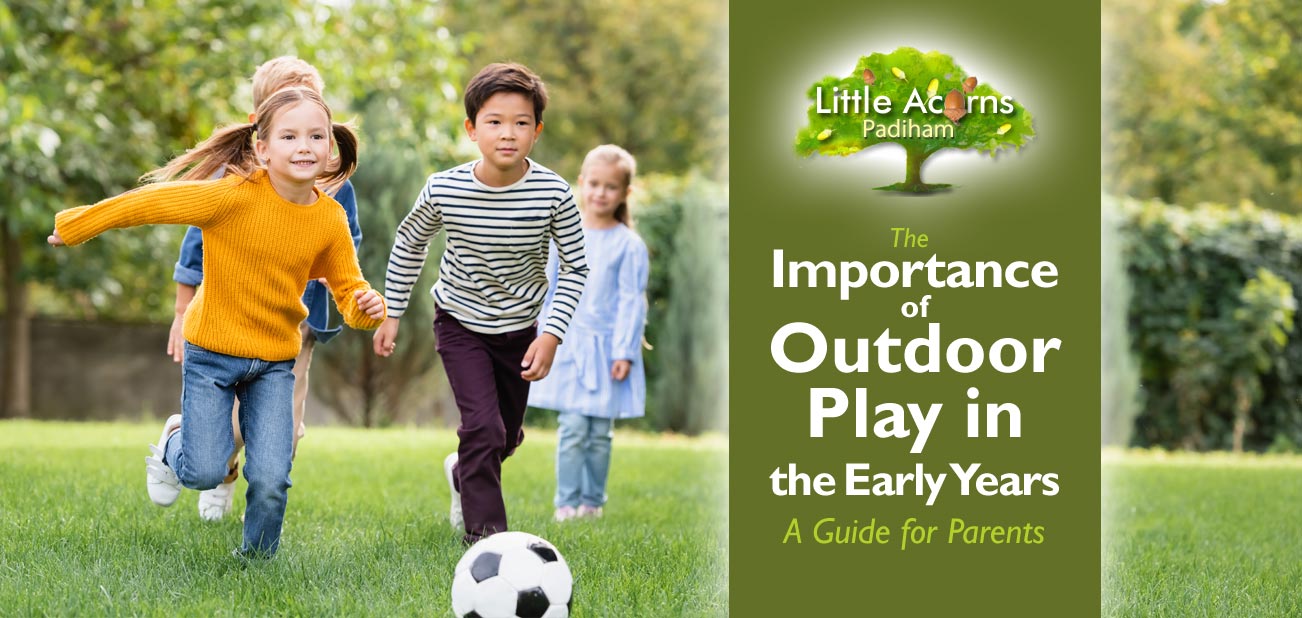
 There’s something truly magical about childhood spent outdoors — the feel of grass under little feet, the thrill of climbing onto a rustic log for the first time, the delight in spotting a ladybird on a leaf, or precious time spent playing with friends. However, in today’s busy, screen-filled world, many children spend far less time outside than previous generations. For children in their early years — toddlers and preschoolers — this simple joy isn’t just fun; it is essential for learning, growth, and wellbeing. Today’s guide explores why outdoor play is so important and offers practical ideas for making it part of everyday life.
There’s something truly magical about childhood spent outdoors — the feel of grass under little feet, the thrill of climbing onto a rustic log for the first time, the delight in spotting a ladybird on a leaf, or precious time spent playing with friends. However, in today’s busy, screen-filled world, many children spend far less time outside than previous generations. For children in their early years — toddlers and preschoolers — this simple joy isn’t just fun; it is essential for learning, growth, and wellbeing. Today’s guide explores why outdoor play is so important and offers practical ideas for making it part of everyday life. Being outdoors provides more than just fresh air — it encourages movement, sparks curiosity, inspires confidence, and helps children develop in a myriad of ways. Whether they are running across a playground, climbing a tree, or watching an insect on a leaf, children are learning about the world around them and practising skills that will serve them for years to come. Outdoor play is not an optional extra; it is a vital part of healthy early childhood development.
Being outdoors provides more than just fresh air — it encourages movement, sparks curiosity, inspires confidence, and helps children develop in a myriad of ways. Whether they are running across a playground, climbing a tree, or watching an insect on a leaf, children are learning about the world around them and practising skills that will serve them for years to come. Outdoor play is not an optional extra; it is a vital part of healthy early childhood development. Young children need to build fitness, strength, coordination, and balance, and outdoor play is perfect for this. Running across open spaces, jumping over puddles, or navigating uneven ground all support fitness, muscular development, and bone health. Even small movements like digging in the garden or balancing on playground equipment help children grow stronger, hone balance and coordination, and become more agile.
Young children need to build fitness, strength, coordination, and balance, and outdoor play is perfect for this. Running across open spaces, jumping over puddles, or navigating uneven ground all support fitness, muscular development, and bone health. Even small movements like digging in the garden or balancing on playground equipment help children grow stronger, hone balance and coordination, and become more agile. Playing outside with other children is huge fun! It also teaches important social skills, such as sharing, taking turns, and cooperating. It also nurtures emotional resilience — learning to manage disappointment when a game doesn’t go their way, or the thrill of conquering a slightly scary obstacle, helps build confidence. Outdoor play also offers children a sense of freedom and independence, which is crucial for developing self-esteem.
Playing outside with other children is huge fun! It also teaches important social skills, such as sharing, taking turns, and cooperating. It also nurtures emotional resilience — learning to manage disappointment when a game doesn’t go their way, or the thrill of conquering a slightly scary obstacle, helps build confidence. Outdoor play also offers children a sense of freedom and independence, which is crucial for developing self-esteem. Some parents may worry that they need large gardens or special equipment to provide meaningful outdoor play, but this isn’t the case. The simplest activities can often be the most rewarding. Jumping in or over puddles, drawing with chalk on the pavement, building things with sticks, or
Some parents may worry that they need large gardens or special equipment to provide meaningful outdoor play, but this isn’t the case. The simplest activities can often be the most rewarding. Jumping in or over puddles, drawing with chalk on the pavement, building things with sticks, or 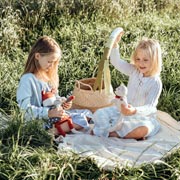 Outdoor play offers unique possibilities throughout the year. In spring, puddles, mud, and budding flowers provide endless opportunities for
Outdoor play offers unique possibilities throughout the year. In spring, puddles, mud, and budding flowers provide endless opportunities for  The best way to reap the benefits of outdoor play is to make it a regular part of your child’s routine. Even brief, daily sessions of outdoor activity have lasting benefits. Walks to the park, nursery, or school, time spent exploring a garden, or creating simple outdoor rituals like
The best way to reap the benefits of outdoor play is to make it a regular part of your child’s routine. Even brief, daily sessions of outdoor activity have lasting benefits. Walks to the park, nursery, or school, time spent exploring a garden, or creating simple outdoor rituals like 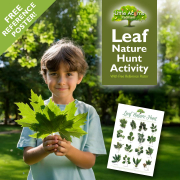
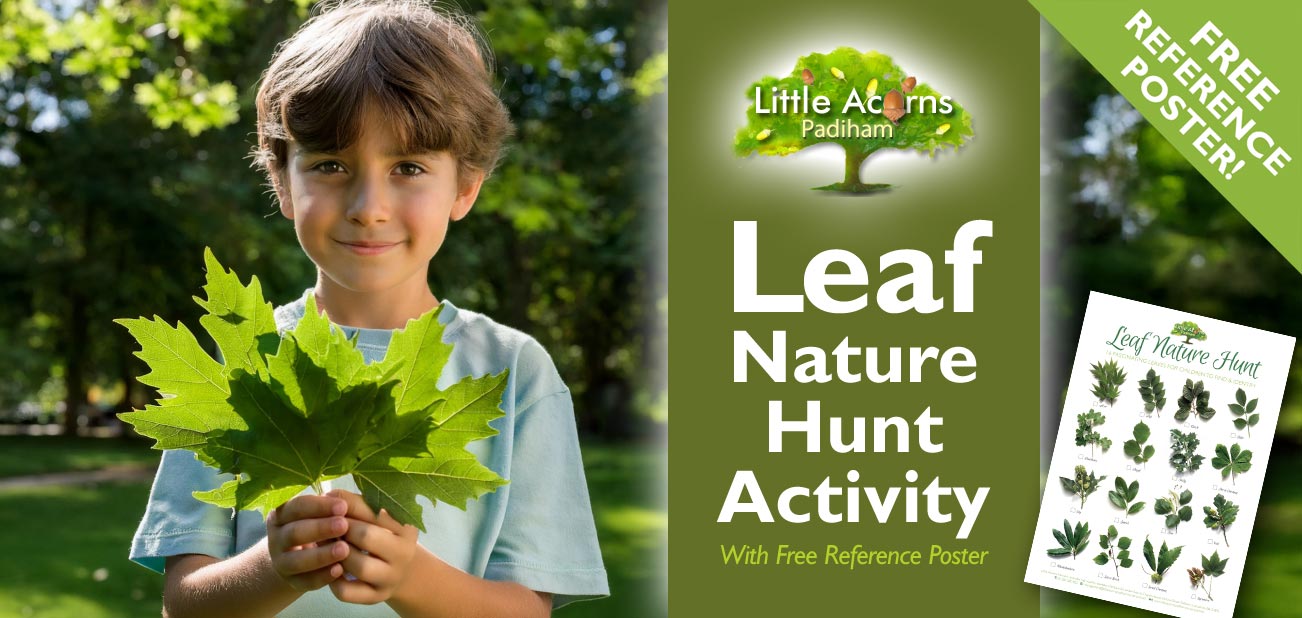
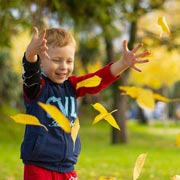 Summer and autumn are wonderful times for children to experience nature in its full glory. At such times, the natural world is brimming with colourful flora and fauna, and it’s a spectacular feast for their eyes and senses. Outdoors, little ones can learn an enormous amount about the natural world around them, enjoy some fresh air and freedom – under supervision, of course — and reap the
Summer and autumn are wonderful times for children to experience nature in its full glory. At such times, the natural world is brimming with colourful flora and fauna, and it’s a spectacular feast for their eyes and senses. Outdoors, little ones can learn an enormous amount about the natural world around them, enjoy some fresh air and freedom – under supervision, of course — and reap the 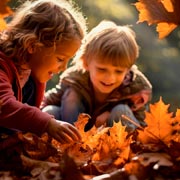
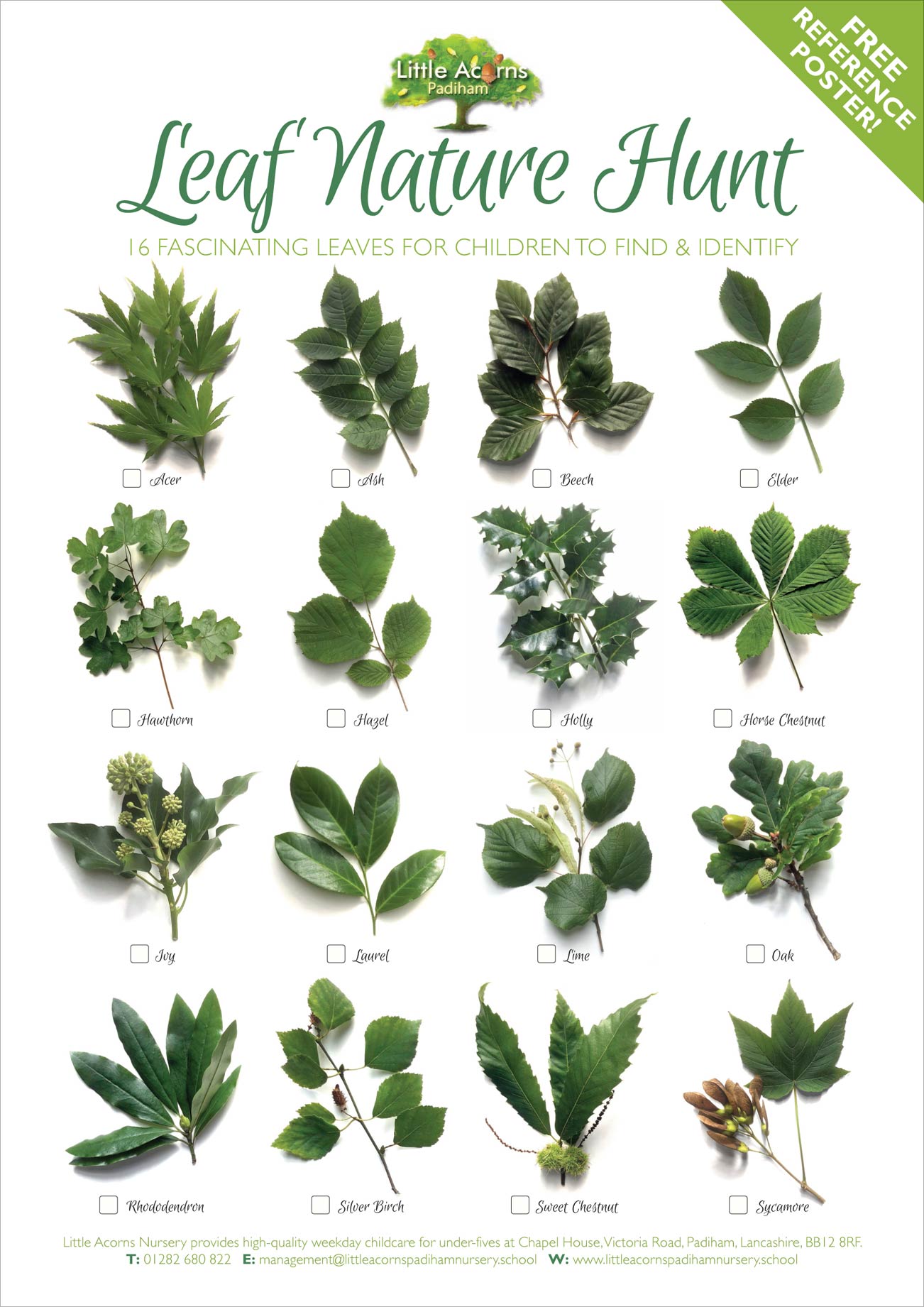
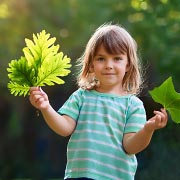 Point out the huge variety of different shapes, sizes, and textures of leaves in the natural world.
Point out the huge variety of different shapes, sizes, and textures of leaves in the natural world.
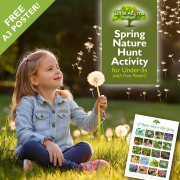
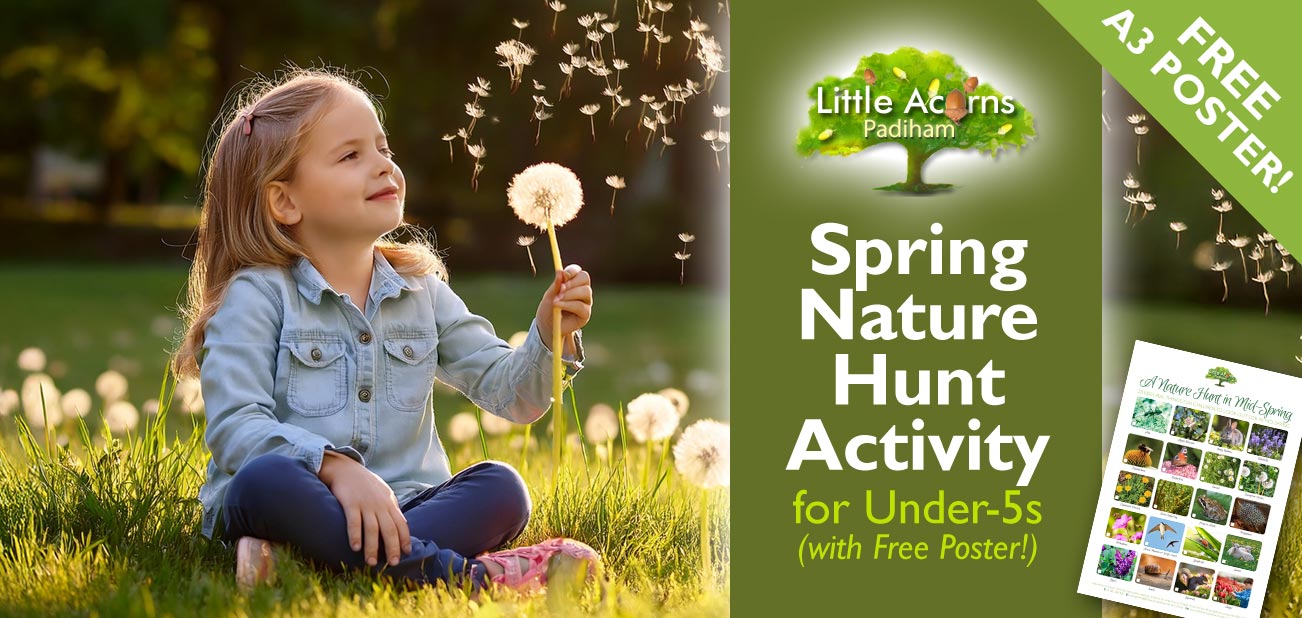
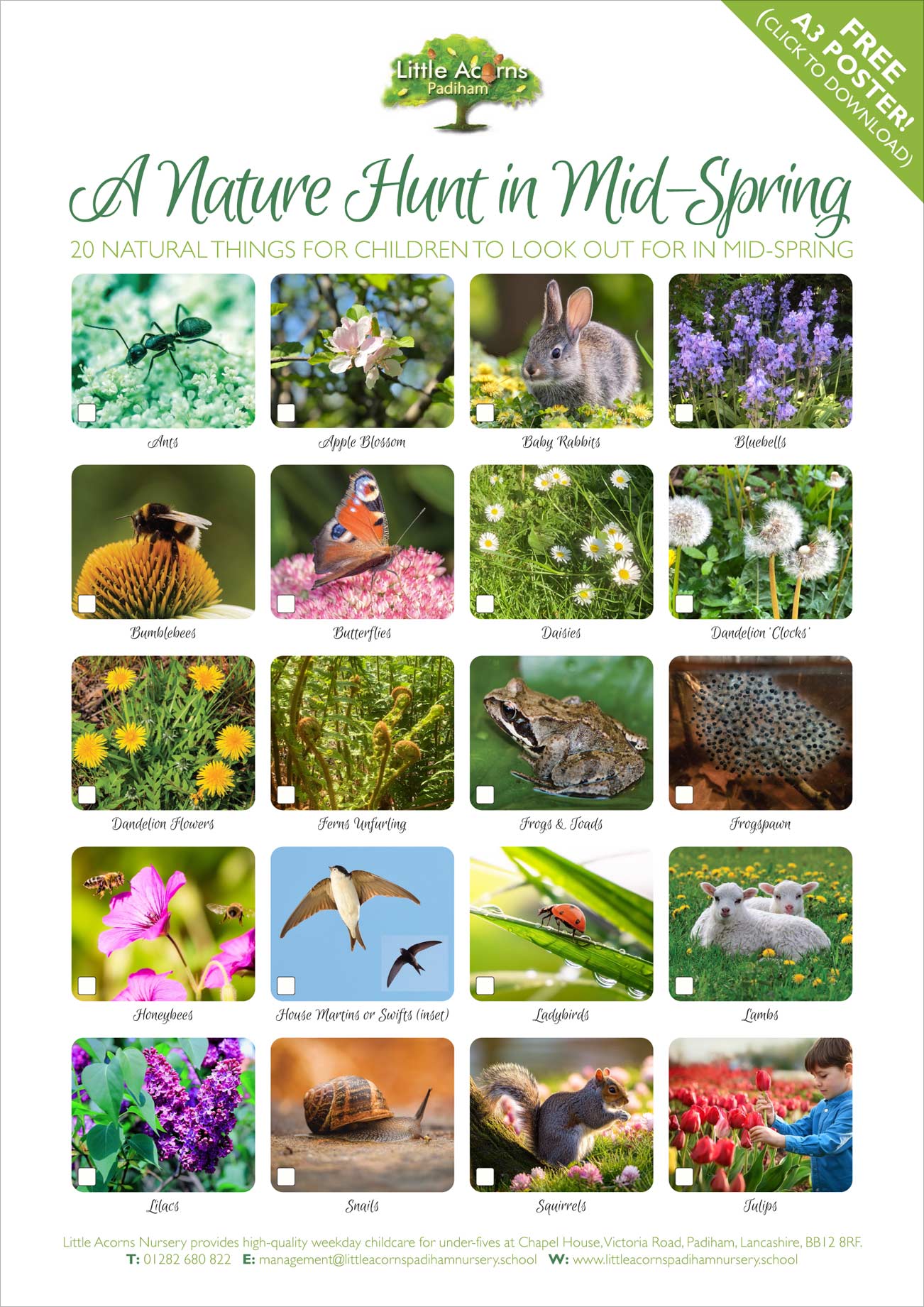
 Bluebells also come in pink or white. They’re referred to as pinkbells (also known as pink bluebells and Spanish bluebells) and whitebells (or white bluebells).
Bluebells also come in pink or white. They’re referred to as pinkbells (also known as pink bluebells and Spanish bluebells) and whitebells (or white bluebells).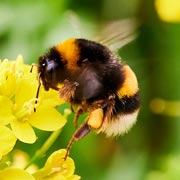 Does your child know about bee nectar baskets? Those are the little yellow leg pouches that can be seen on some bumblebees’ and honeybees’ legs. They are where the bees collect and store their nectar ready to transport back to the hive.
Does your child know about bee nectar baskets? Those are the little yellow leg pouches that can be seen on some bumblebees’ and honeybees’ legs. They are where the bees collect and store their nectar ready to transport back to the hive.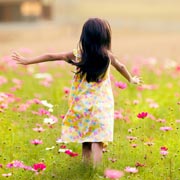 We’ve said before — and we’ll keep on saying — nature is incredibly good for children and adults alike. But what are some of the benefits, and why is nature so important to children? Well, we wrote an article about it and you can read our top
We’ve said before — and we’ll keep on saying — nature is incredibly good for children and adults alike. But what are some of the benefits, and why is nature so important to children? Well, we wrote an article about it and you can read our top 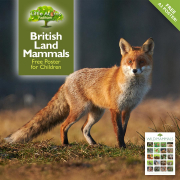
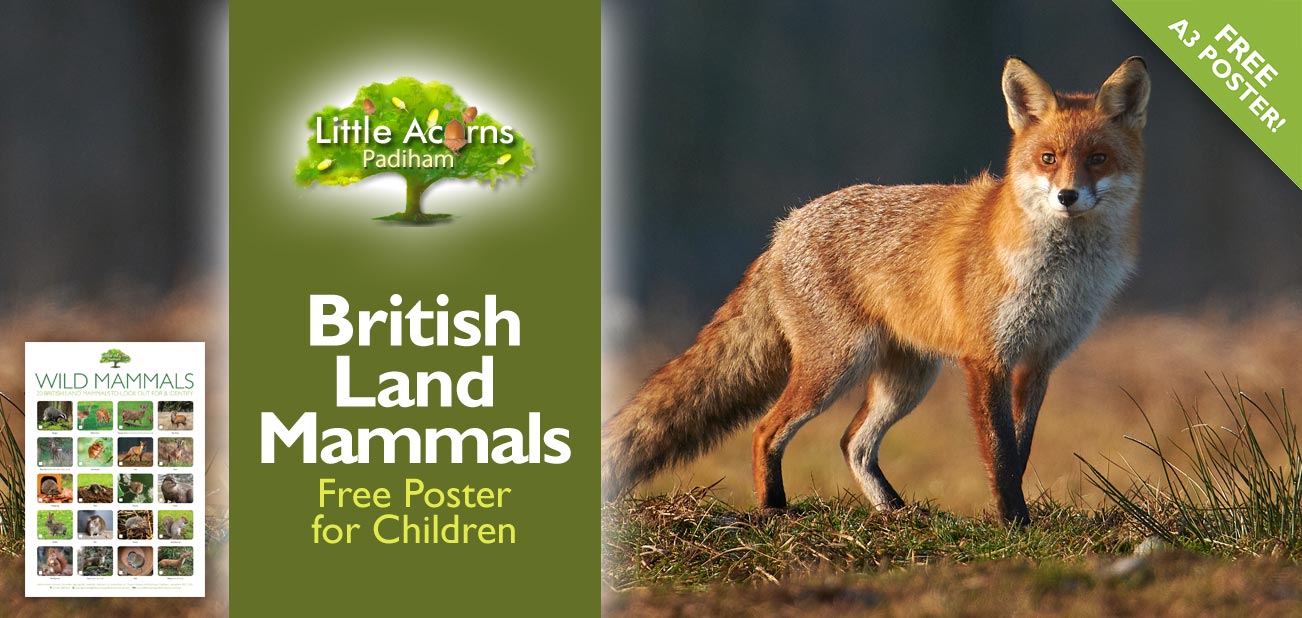
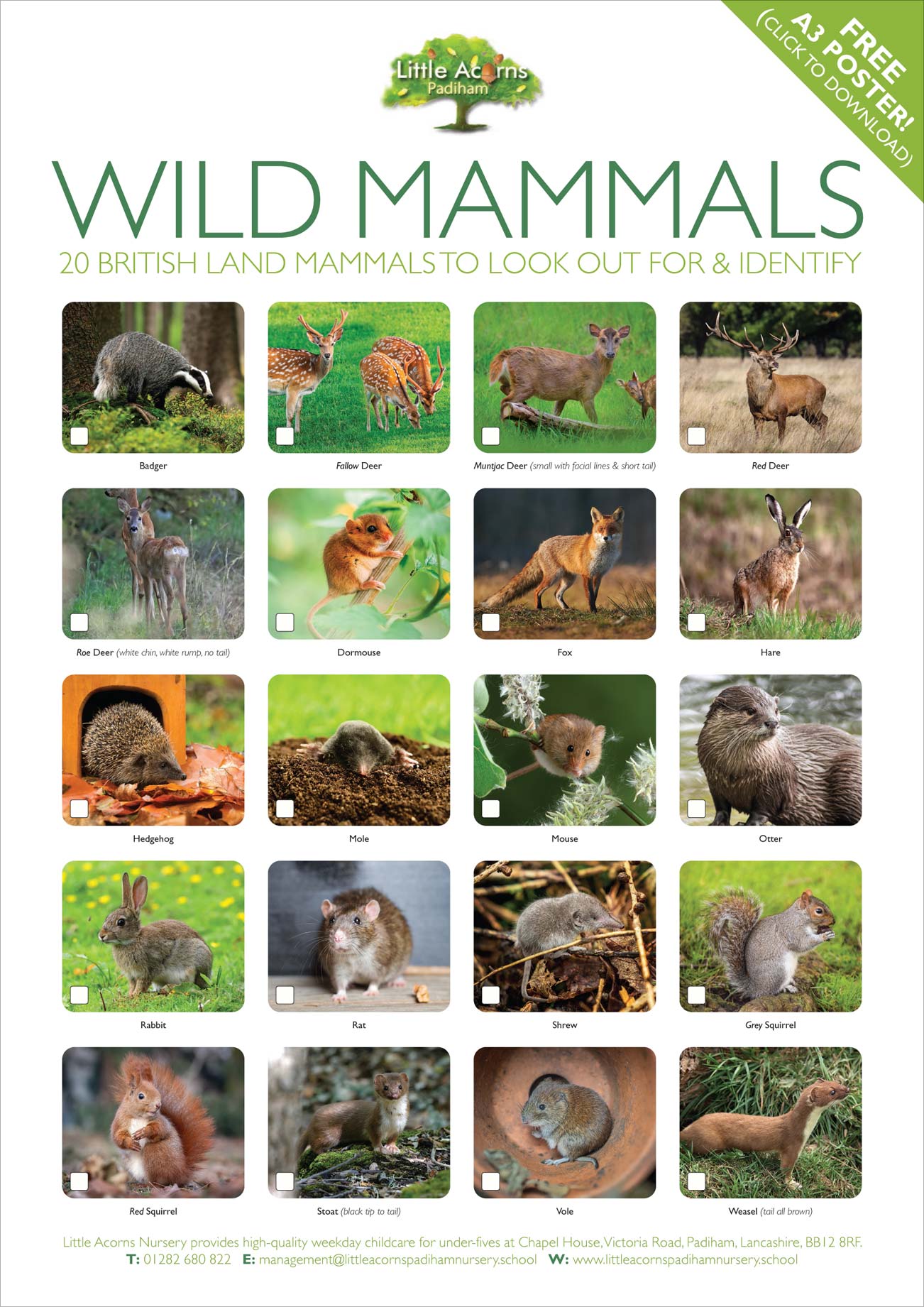
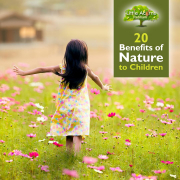
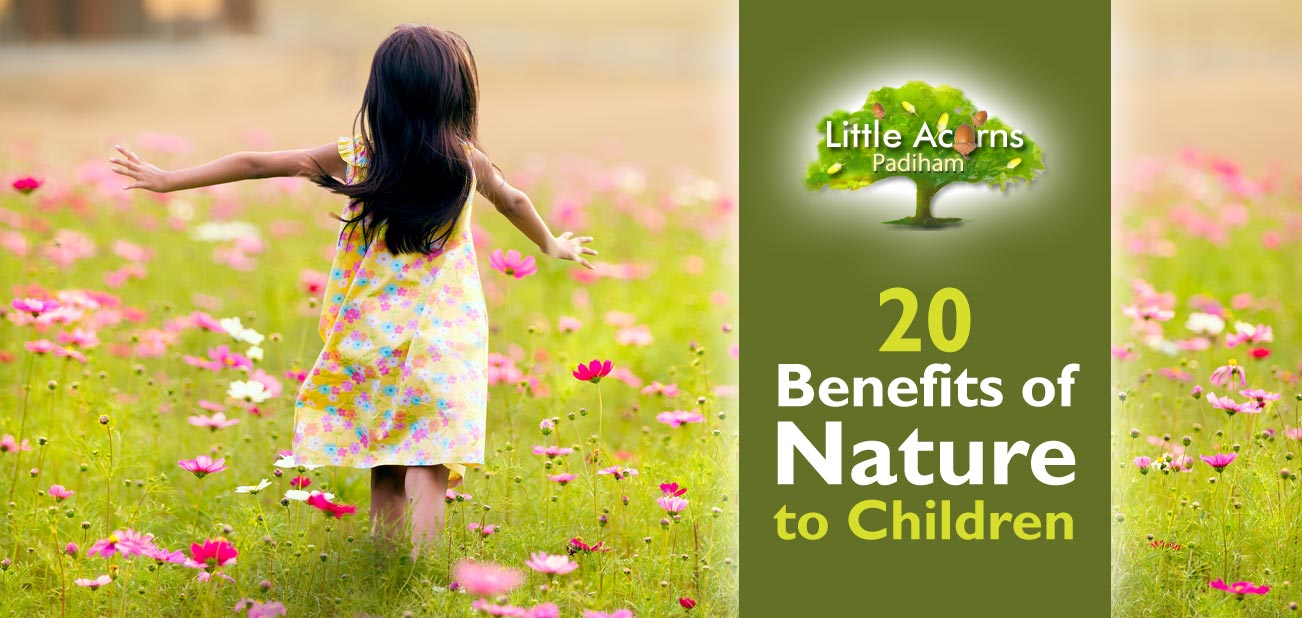
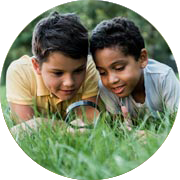 One of the many reasons we love nature and nature-based children’s activities here at Little Acorns Nursery is that nature is incredibly beneficial to children. What’s more, the benefits start right from their earliest years and are profoundly powerful to little ones. There have been many studies about this over the years and they all seem to conclude that nature is incredibly good for us all, especially so during the early years. Today’s post looks at 20 of the key benefits that spending time in and around nature holds for children and, with Spring now upon us, it’s the perfect time to begin getting little ones outside more, weather permitting.
One of the many reasons we love nature and nature-based children’s activities here at Little Acorns Nursery is that nature is incredibly beneficial to children. What’s more, the benefits start right from their earliest years and are profoundly powerful to little ones. There have been many studies about this over the years and they all seem to conclude that nature is incredibly good for us all, especially so during the early years. Today’s post looks at 20 of the key benefits that spending time in and around nature holds for children and, with Spring now upon us, it’s the perfect time to begin getting little ones outside more, weather permitting.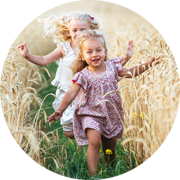 Spending time in and around nature means children are more likely to be active, for example, walking, running, skipping, climbing, playing, making, or simply building a den. Such activities will not only help them hone fine and gross motor skills, but will also improve coordination, balance, and fitness. Those skills will help them day-to-day while expending energy in this way will help them maintain a healthy weight and body-mass index.
Spending time in and around nature means children are more likely to be active, for example, walking, running, skipping, climbing, playing, making, or simply building a den. Such activities will not only help them hone fine and gross motor skills, but will also improve coordination, balance, and fitness. Those skills will help them day-to-day while expending energy in this way will help them maintain a healthy weight and body-mass index. One of the more obvious benefits of nature is that it gives children a huge sense of freedom that they might not otherwise experience. Being in The Great Outdoors allows children, under appropriate supervision, to run, explore, and play in ways that are far more free than in any other situation. This will also give them a huge sense of natural joy.
One of the more obvious benefits of nature is that it gives children a huge sense of freedom that they might not otherwise experience. Being in The Great Outdoors allows children, under appropriate supervision, to run, explore, and play in ways that are far more free than in any other situation. This will also give them a huge sense of natural joy.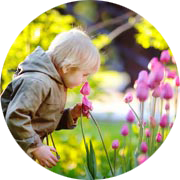 The stimulation of the senses is never more important than during children’s early years and spending time in nature is the perfect vehicle through which to do so. With so many colours, sounds, smells, textures and even (under adult supervision) tastes available in the natural world, it is indeed a feast for children’s senses. Through the senses, children will learn more about the world and generate millions of new connections in their developing brains. It’s almost magical!
The stimulation of the senses is never more important than during children’s early years and spending time in nature is the perfect vehicle through which to do so. With so many colours, sounds, smells, textures and even (under adult supervision) tastes available in the natural world, it is indeed a feast for children’s senses. Through the senses, children will learn more about the world and generate millions of new connections in their developing brains. It’s almost magical!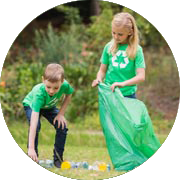 Being around nature regularly can also help children lean naturally towards environmental issues, learn about the problems and become part of the solution. An appreciation of nature is indeed the first step towards becoming environmentally conscious and proactive. That’s a great thing for the planet, particularly as today’s children will become tomorrow’s custodians of the Earth.
Being around nature regularly can also help children lean naturally towards environmental issues, learn about the problems and become part of the solution. An appreciation of nature is indeed the first step towards becoming environmentally conscious and proactive. That’s a great thing for the planet, particularly as today’s children will become tomorrow’s custodians of the Earth.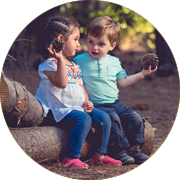 Children generally team up with friends when they’re playing and exploring outdoors. Spending time playing together in natural environments fosters many different kinds of interaction. This can boost confidence, language, communication and social skills. Stronger bonds and a deeper understanding of peers are likely to form from this.
Children generally team up with friends when they’re playing and exploring outdoors. Spending time playing together in natural environments fosters many different kinds of interaction. This can boost confidence, language, communication and social skills. Stronger bonds and a deeper understanding of peers are likely to form from this.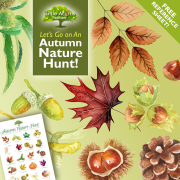
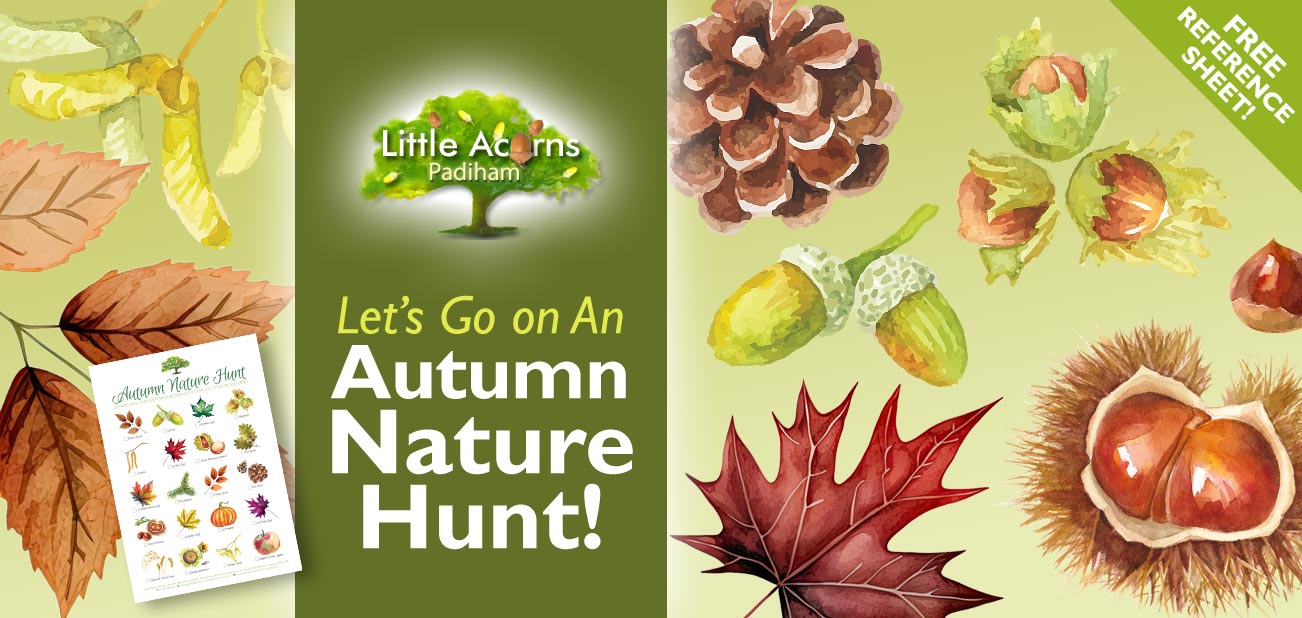
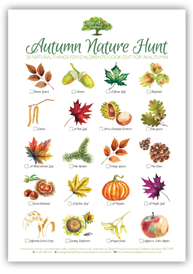 As leaves start to blanket the ground and the earthy scents of autumn begin to infuse the air, it’s the perfect time to engage children in a captivating adventure that celebrates the season. In today’s post, we’ll introduce you to an Autumn Nature Hunt, an exciting outdoor activity for children that’s not only entertaining but also educational.
As leaves start to blanket the ground and the earthy scents of autumn begin to infuse the air, it’s the perfect time to engage children in a captivating adventure that celebrates the season. In today’s post, we’ll introduce you to an Autumn Nature Hunt, an exciting outdoor activity for children that’s not only entertaining but also educational.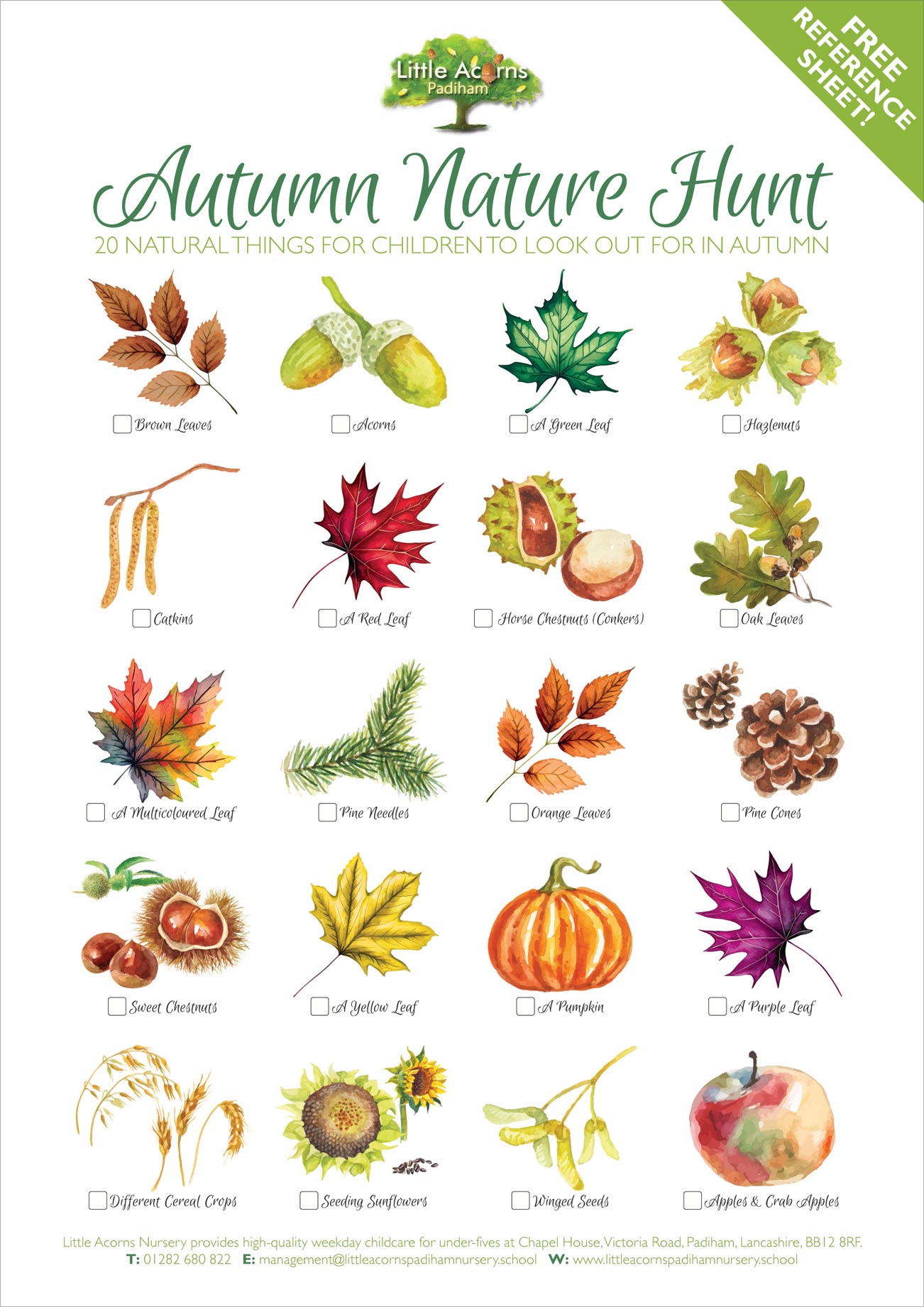
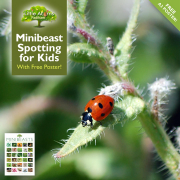
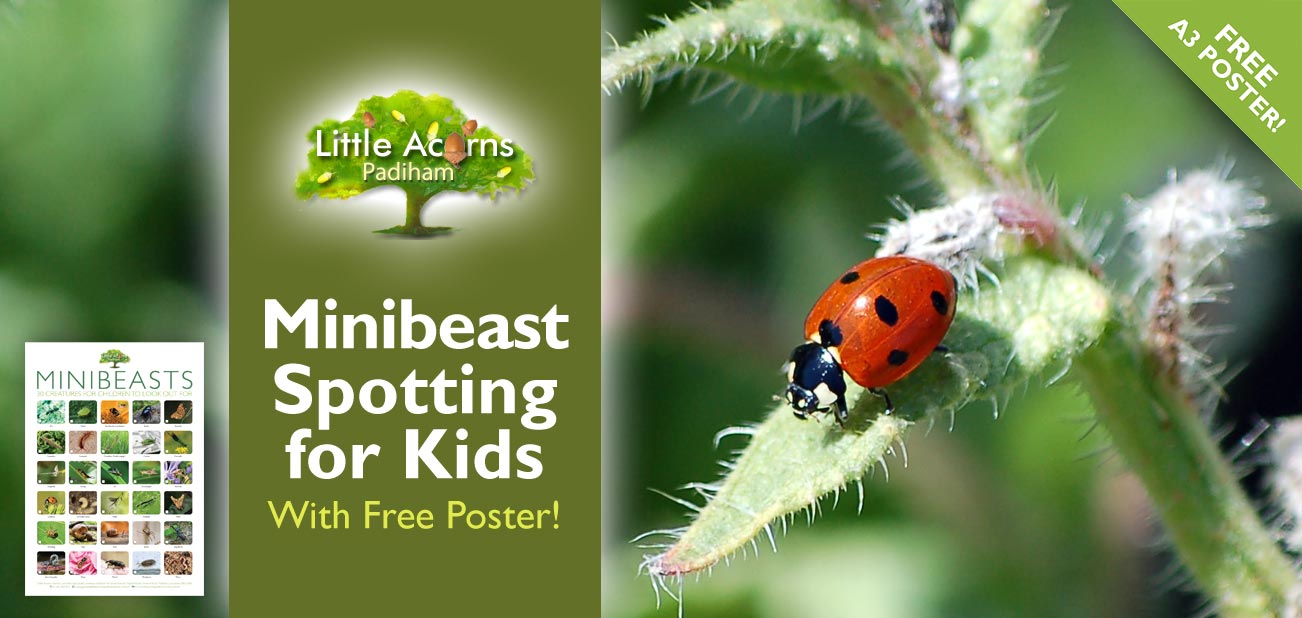
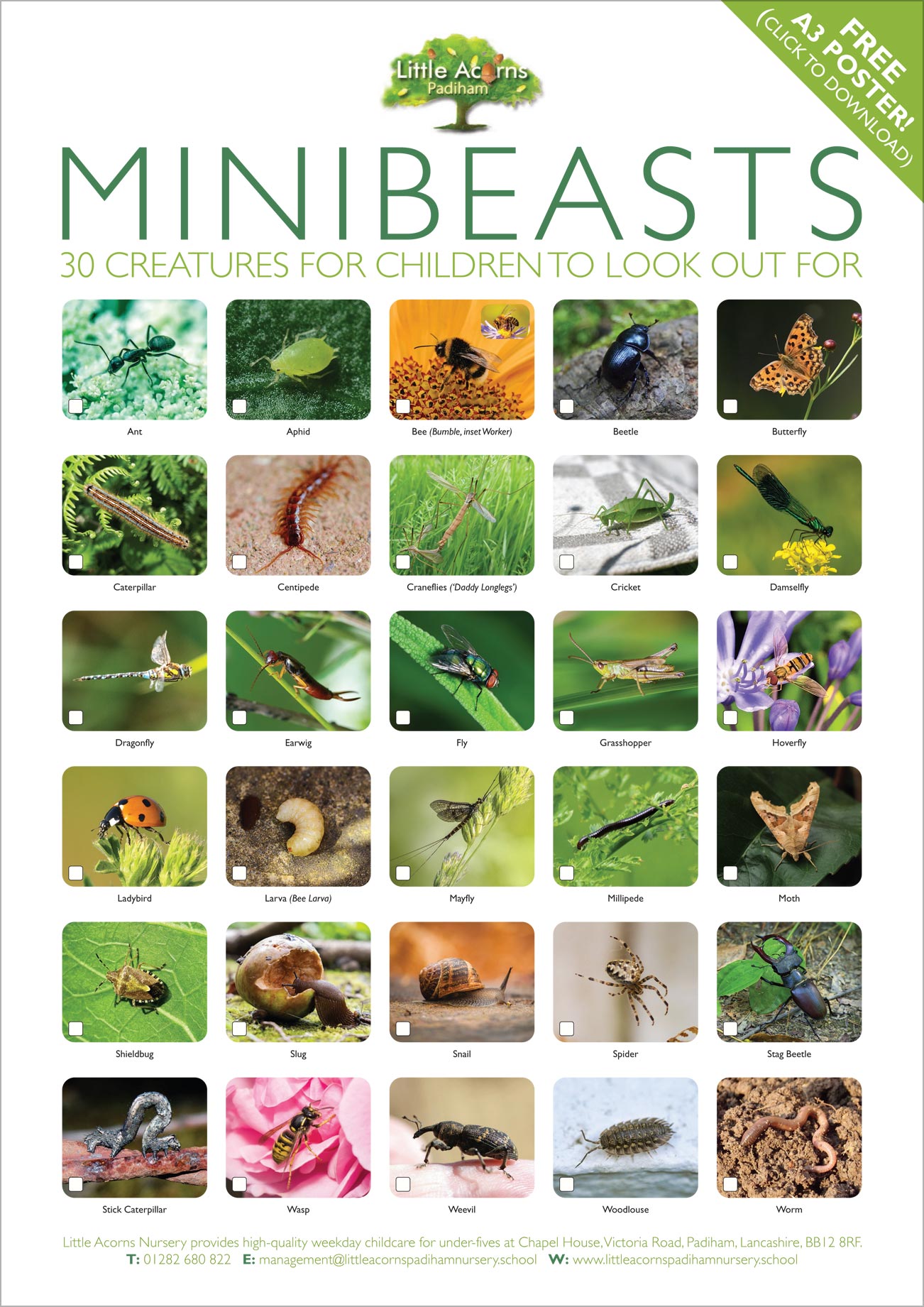
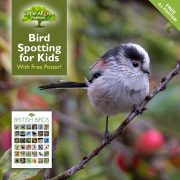
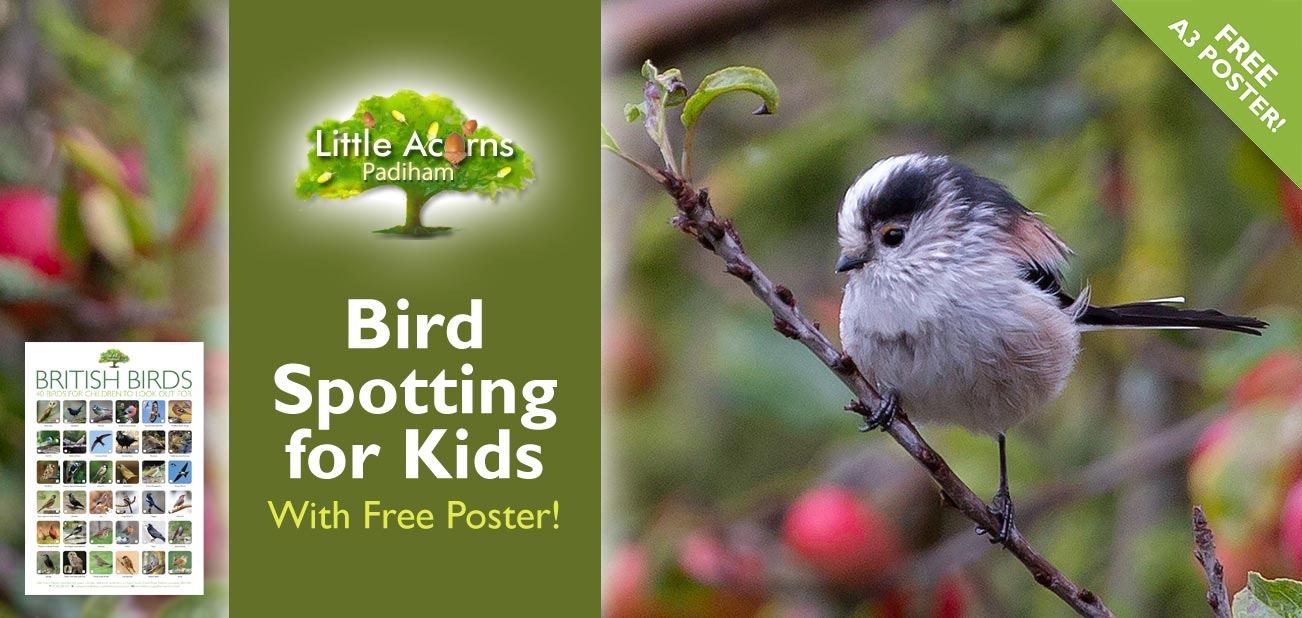
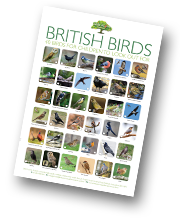 Today’s bird spotting activity for kids continues our series of nature-themed posts that each come with a free reference poster for families to download. Featuring 40 British birds, the activity and the poster represent a great opportunity to get children of all ages outdoors, closer to nature. As many of us know,
Today’s bird spotting activity for kids continues our series of nature-themed posts that each come with a free reference poster for families to download. Featuring 40 British birds, the activity and the poster represent a great opportunity to get children of all ages outdoors, closer to nature. As many of us know, 